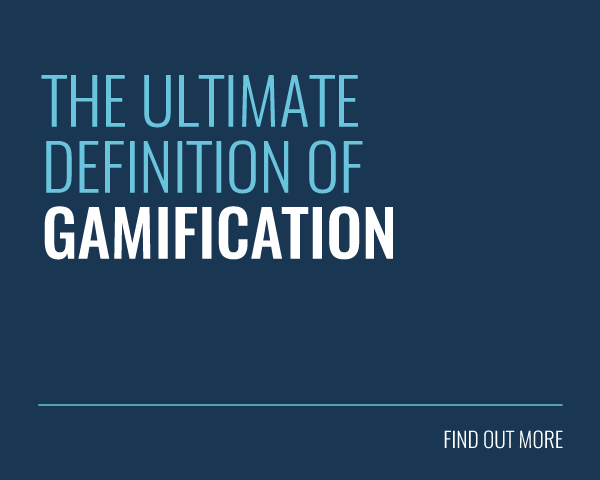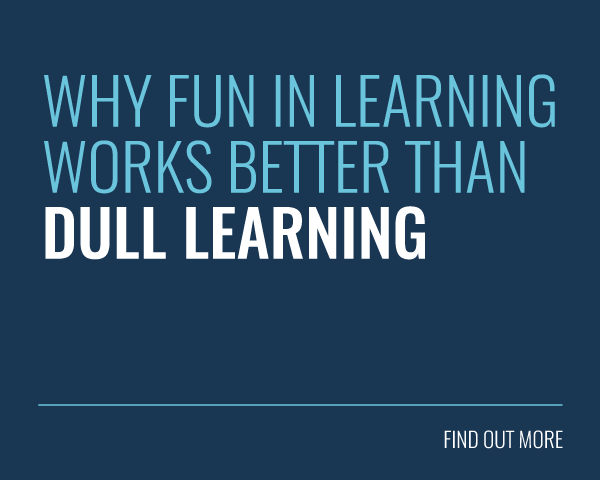 In the world of online learning buzzwords, serious games have raised their heads time and again, but what are they? Are they any different from game-based learning and if so, how?
In the world of online learning buzzwords, serious games have raised their heads time and again, but what are they? Are they any different from game-based learning and if so, how?
A couple of Google searches will show you that there are countless definitions of serious games (we last counted 33!) but whatever form these games take, they all meet the same criterion:
“…a game designed for a primary purpose other than pure entertainment.”
In essence, ‘serious games’ can be applied as an umbrella term for any game-based initiative that has an additional, ‘serious’ agenda. Training and development is a serious topic – highly motivated and developed employees can make the difference between a company that succeeds and one that fails. What could be more serious than that?!
Why do we need Serious Games?
Training and development has been approached in many ways to deal with specific learning objectives. From physical training manuals to training videos and eLearning units, every medium has its strengths and weaknesses.
The lynchpin that determines the success of any training effort is engagement, and that’s where a learning game excels. With a serious game initiative, the learning content is delivered in a game-based environment.
What makes a game so engaging?

There are many common attributes shared by all games from Monopoly to World of Warcraft that help reinforce the learning objective in an engaging way.
Story
A good game, like a good movie, has a gripping storyline. When creating a serious game, the game’s story can be used to reinforce the company’s values and add an additional level of learning.
Game mechanics & Interactivity
Game mechanics are tools that make games work. If you roll dice in Snakes and Ladders or push a button to fire a laser at a Space Invader, you’ve used a game mechanic. These provide an element of interactivity that keeps the learner involved throughout the whole process.
Rules
Rules provide the framework that differentiates a fun game from utter chaos. This is another interactive element that subliminally delivers a learning objective. In life, our most profound lessons come from failures. When a learner breaks a rule in a serious game, they will incur a penalty. This leads them to change their behaviour in order to avoid breaking that rule again.
Immersive graphical environment
Some of the most successful games are (let’s be frank) graphically unimpressive. For casual (non-serious) games, the gameplay itself usually wins out over how pretty it is. Although a serious game can be created without immersive graphics, most of them have a user interface that represents and reinforces the learning objective.
Challenge/competition
All games involve an element of challenge. At its simplest form, the player’s main challenge is to beat their high score. The meteoric success of the games industry runs parallel with developments in interconnectivity. As the internet blossomed, a new breed of multiplayer games dominated the world. Serious games with a social element allow learners to challenge each other. This element of friendly competition is another way to boost engagement
Risks and consequences
Serious games provide a risk-free environment to practise essential skills. This is one of the key benefits for a number of industries including aerospace, defence and medical. In these sectors, the cost of failure is always high, which means that virtual simulations become a practical necessity.
Take a look at our friend Karl Kapp has to say about the matter!
So, is ‘serious games’ just another buzzword? We don’t think so – it’s another way to describe the use of games in non-game applications – not necessarily restricted to learning.
Regardless of the term used, gamification, game-based learning and serious games are all focused on one thing – securing engagement.








